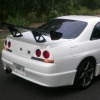supercharged rb30, why not?
Announcements
-
Similar Content
-
Latest Posts
-
It's been years since that bit was true.
-
Don't bother. Easier to get seats/rails that fit ie. aftermarket or R32/3 Gtst/gtr seats.
-
There's no twin scroll on the OEM turbos. On the manifold, kinda, yes. Not on the turbos.
-
By joshuaho96 · Posted
Yeah, but twin scroll is the OEM thing and I love pain. -
By Watermouse · Posted
Outsider is where I got my dbw system and throttle body/accelerator harness’ from. Premo quality and customer service
-





Recommended Posts
Create an account or sign in to comment
You need to be a member in order to leave a comment
Create an account
Sign up for a new account in our community. It's easy!
Register a new accountSign in
Already have an account? Sign in here.
Sign In Now